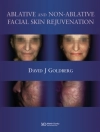The Embodied Self
Dimensions, Coherence and Disorders
Progress of scientific research into the foundations of human self-experience is fascinating, but it also poses serious questions:
* Is the self more than an illusion created by the brain?
* What role does the body play for self-experience and inter Subjectivity?
* What can pathologies of the self tell us about the constitution of normal self-awareness?
* What consequences does this have for our concepts and therapy of psychiatric and psychosomatic disorders?
* How may the results of neurobiological, psychological, philosophical and clinical research on the self and its disorders be related to each other?
These and other key questions are dealt with in this volume which offers cutting-edge research in an expanding interdisciplinary area. It is based on the joint European project DISCOS (‘Disorders and Coherence of the Embodied Self’) which unites philosophers, neuroscientists, psychologists and psychiatrists who are among the leading researchers in their respective field.
قائمة المحتويات
Philosophy: What makes up a Self? Self Coherence and its Origins
* Minimal Self and Narrative Self
* Body Perception and Self-Consciousness
* Radical Enactivism and Narrative Practice
* A Common Ground Approach to Selfhood
Neuroscience: Brain, Consciousness and Self
* Neuroscientific Approach to Inter Subjectivity
* Brain Function in Disorders of Consciousness
* Cognitive and Bodily Selves
Is There a Self Without Selves? Development of Self and Inter Subjectivity
* Contingency Perception
* Me and Mine in Early Development
* Autism: A Disorder in the Development of Self
* Understanding Inter Subjectivity: Enactive and Embodied
Psychiatry and Psychosomatic Medicine: How to Treat a Self. Self Disorders and Their Therapy
* Phenomenology of Self-Disorders
* Mentalization and Structural Functioning: Therapeutic Implications
* Boundaries and Common Grounds: Aspects of Integration
عن المؤلف
Thomas Fuchs
geboren 1958, nach Studium der Medizin, Philosophie und Geschichte in München Promotionen in Medizingeschichte und Philosophie, Ausbildung zum Facharzt für Psychiatrie und Psychotherapie. Nach Habilitationen in Psychiatrie und in Philosophie seit 2010 Karl-Jaspers-Professor für Philosophische Grundlagen der Psychiatrie an der Universität Heidelberg. Zahlreiche Veröffentlichungen zur phänomenologischen Anthropologie, Psychologie und Psychiatrie sowie zur Theorie der Neurowissenschaften.












